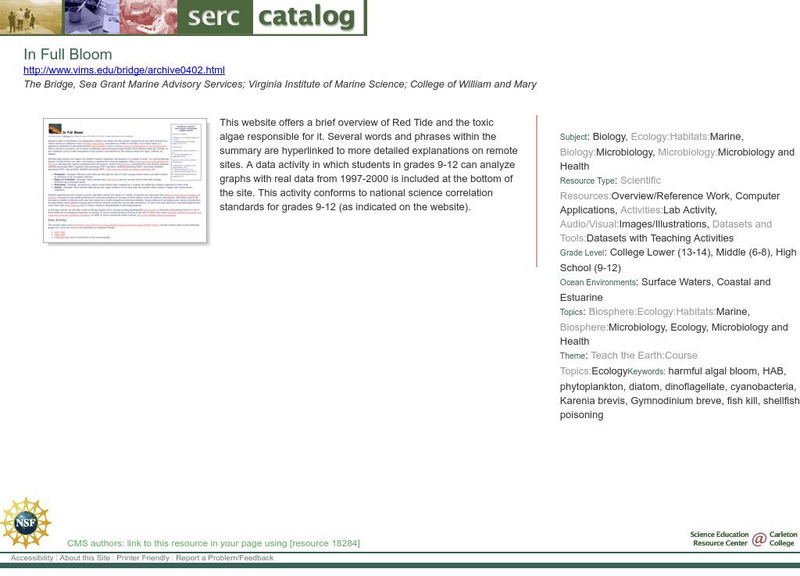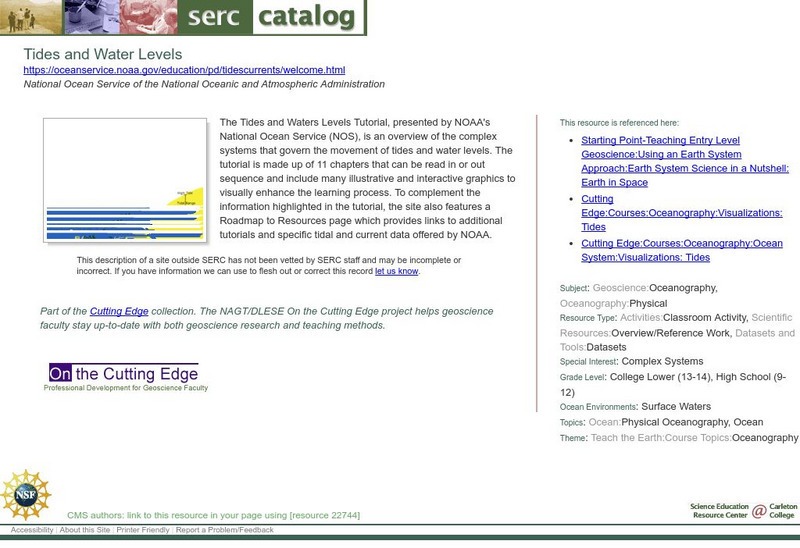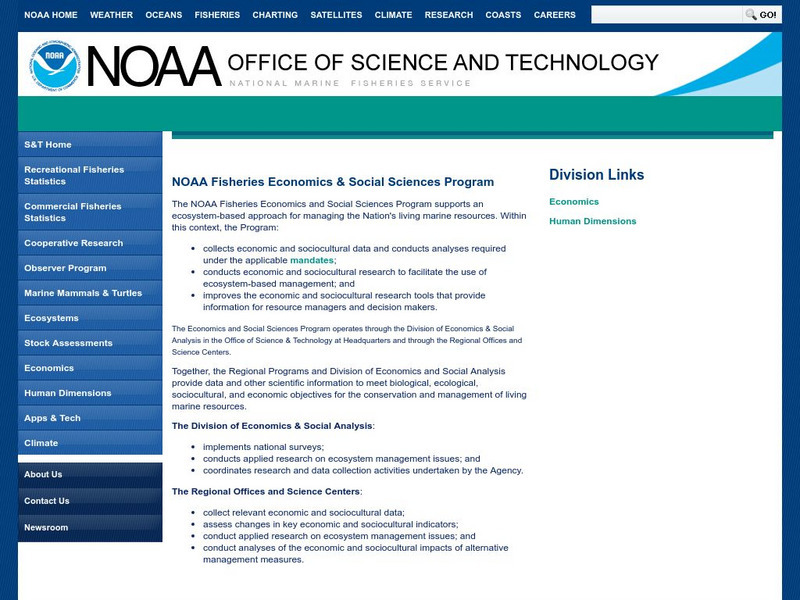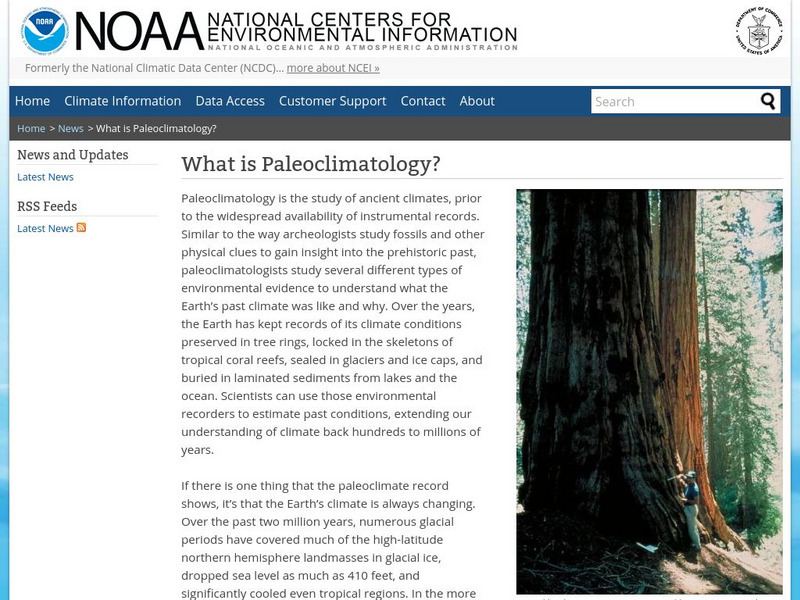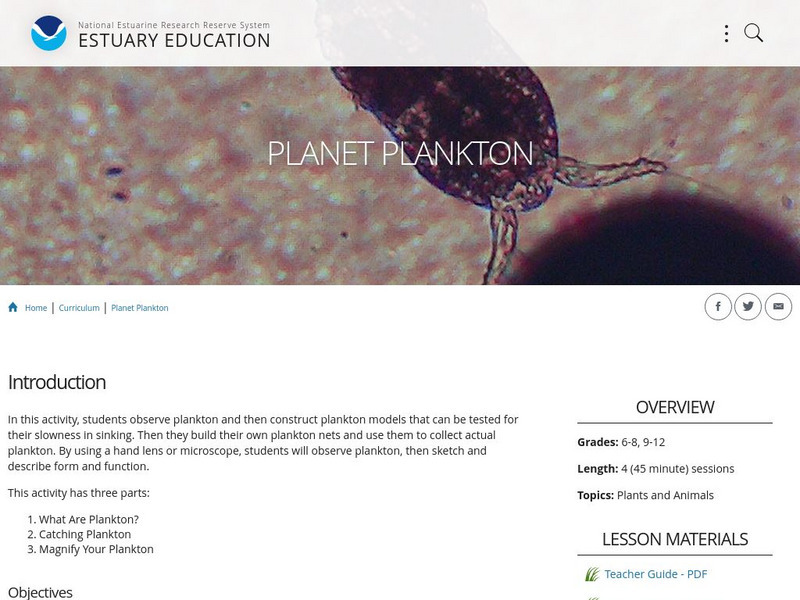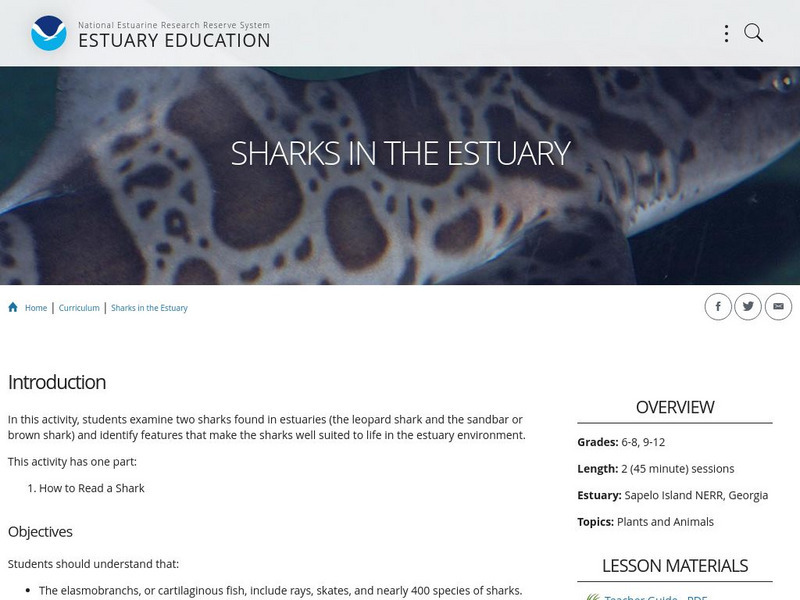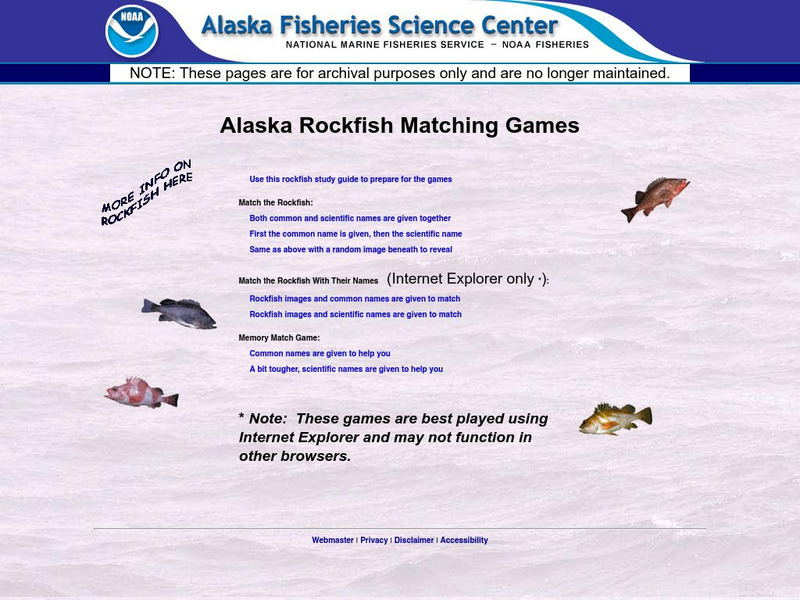Hartford Web Publishing
World History Archives: Arctic Climate Changing Rapidly
This article from the Environmental News Service gives evidence of global warming in the Arctic region.
NOAA
Noaa: It All Runs Down Hill [Pdf]
Read how freshwater moving across the surface of the Earth can become polluted and bad for the environment. Create a model that shows how water can become polluted as it flows downhill.
NOAA
Noaa: Structure of the Earth [Pdf]
Create a model to help learn the layers and structures within the Earth. Identify characteristics of each layer of the Earth.
Science Education Resource Center at Carleton College
Serc: In Full Bloom
Students compare concentrations of harmful algal blooms using NOAA's Coastal Services Center Harmful Algal Bloom Forecasting (HABF) Project data.
Science Education Resource Center at Carleton College
Serc: Tides and Water Levels
This tutoria is an overview of the complex systems that govern the movement of tides and water levels. It is made up of 11 chapters that can be read in or out sequence, and includes many illustrative and interactive graphics to visually...
Climate Literacy
Clean: Coral Bleaching: A White Hot Problem
Students investigate coral bleaching using water temperature data from the NOAA National Data Buoy Center. Then they learn about the habitat of corals, the stresses on coral populations, and the impact of increased sea surface...
NOAA
Noaa: Fisheries Economics & Social Sciences Program
This home page provides information about fishing economics and includes links to recreational and commercial fishing/economics sites.
NOAA
Noaa: Operational Significant Event Imagery
This site contains satellite images from around the world organized by significant events such as dust storms, floods, severe weather, etc. Not very user friendly, but the images are there for those willing to search.
NOAA
Noaa: What Is Paleoclimatology?
An introduction from NOAA to the study of Paleoclimatology. Provides link to the NOAA's Paleoclimatology Data page where there is a great deal of more information.
NOAA
Noaa: National Climatic Data Center: Groundhog Day
Find background about Groundhog Day and the folklore involved. Look through the charts that show how closely Punxsutawney Phil's predicitions align with the actual weather.
Science Education Resource Center at Carleton College
Serc: Impacts of El Nino and La Nina
Learners explore NOAA and the Climate Data Center to gather data about El Nino. Then they interpret a series of maps to describe the key changes in climate conditions during El Nino and La Nina.
NOAA
Noaa: Estuaries 101 Curriculum: Planet Plankton
Watch a series of videos to learn about the importance of phytoplankton in estuary ecosystems. Then test your understanding by identifying different species of plankton.
NOAA
Noaa: Estuaries 101 Curriculum: Sharks in the Estuary
Using images of different specimens of sharks, learn how physical adaptations have helped this species survive and thrive throughout generations.
NOAA
Noaa: Estuaries 101 Curriculum: Migrating Mangroves and Marshes
Become a mangrove expert. Use this module to learn how to identify species of mangroves found in Florida, and find out why these plants are important in the estuary.
NOAA
Noaa: Estuaries 101 Curriculum: Oil Spill the Rest of the Story
Watch this report on the BP oil spill of 2010, one of the most devastating oil spills in the history of the United States. Learn about not only the effects of a point source pollution event like the oil spill, but also about the many...
NOAA
Noaa: Ngdc Noaa: Family Disaster Plan Quiz
Take this five-question, online quiz to find out how much you know about emergency preparedness for a natural disaster.
NOAA
Noaa: Cpc: Enso Impacts on the United States
"This website provides data tables/maps of US precipitations and temperature rates based on data from previous El Nino Southern Oscillation (ENSO) events."
NOAA
Noaa: Climate Prediction Center
Use this resource to forecast North American temperature and precipitation levels. This tool can be used to predict weather up to three months in advance.
NOAA
Noaa: Weather Systems and Patterns
Imagine our weather if Earth were completely motionless, had a flat dry landscape and an un-tilted axis. This, of course, is not the case; if it were, the weather would be much different. The local weather that impacts our daily lives...
NOAA
Noaa: National Aeronautics and Space Administration: Alaska Rockfish Matching Games
A matching game where you match rockfish by common and scientific names, and images. Site also includes a study guide to help you prepare for the game.
NOAA
Noaa: Ocean Facts on Runoff Pollution
Find out how water pollution can be prevented and how it affects you.
NOAA
Noaa: Ocean Facts on Marine Mammals
The National Oceanic & Atmospheric Administration sponsors this introductory article and related links that tell why marine mammals are valued by the public for their great aesthetic, recreational and economic significance.
NOAA
Noaa: Ocean Facts on Coastal Tourism
The National Oceanic & Atmospheric Administration surveys coastal travel and tourism, which is the largest industry, employer, and foreign-revenue earner in the United States.
Center for Educational Technologies
Severe Weather: Hurricane Watch
Hurricanes are the most powerful of storms. Using satellite images, this site allows you to plot the path of a hurricane and predict when it will strike land.



![Noaa: It All Runs Down Hill [Pdf] Activity Noaa: It All Runs Down Hill [Pdf] Activity](https://d15y2dacu3jp90.cloudfront.net/images/attachment_defaults/resource/large/FPO-knovation.png)
